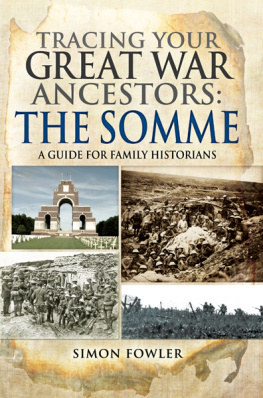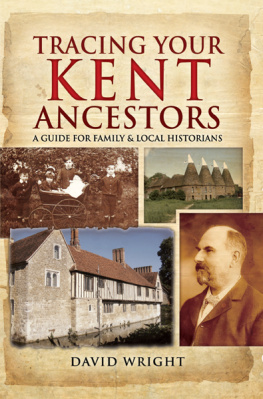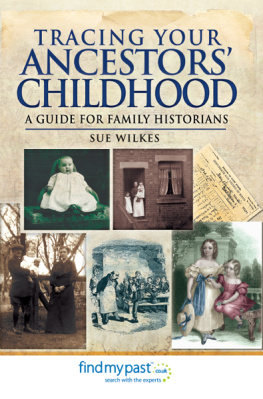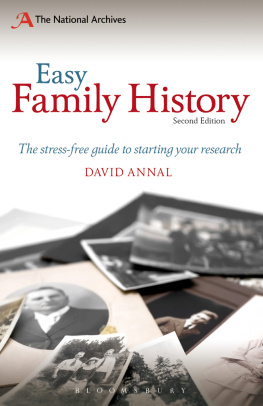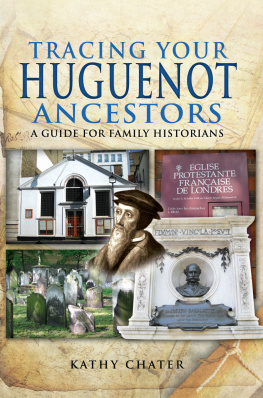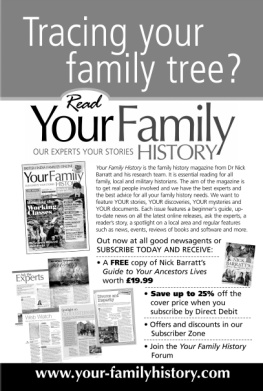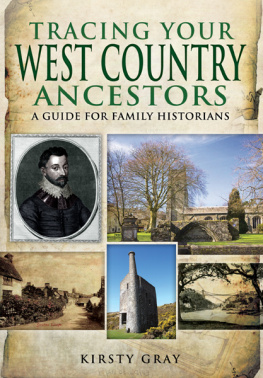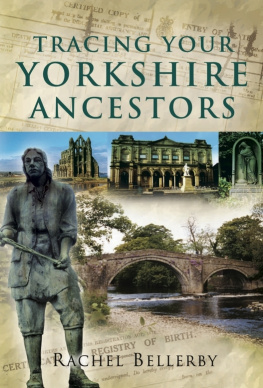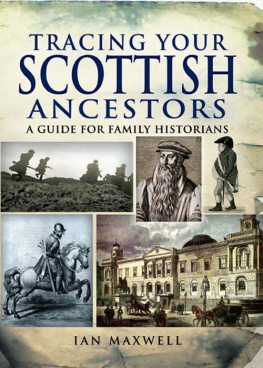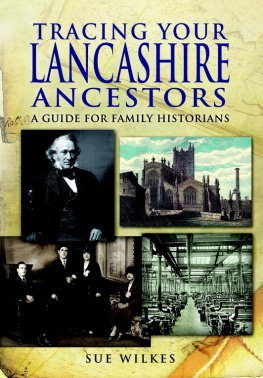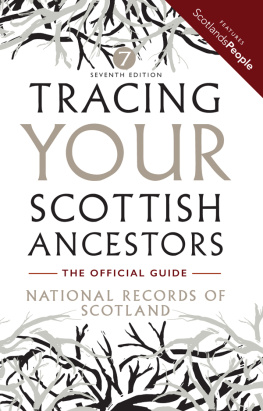
First published by the Public Record Office 1995
Second edition published by the Public Record Office 2002
This third edition published in 2012 by
This electronic edition published 2012
Bloomsbury Publishing Plc
50 Bedford Square
London WC1B 3DP
Copyright Guy Grannum, 2012
The right of Guy Grannum to be identified as the Author of this Work has been
asserted by him in accordance with the Copyright, Designs and Patents Act 1988
No responsibility for loss caused to any individual or organisation acting or
refraining from action as a result of the material in this publication can be
accepted by Bloomsbury Publishing Plc or the author.
A catalogue record for this book is available from the British Library
Print ISBN:9781408175699
Epdf ISBN: 9781408178874
Epub ISBN: 9781408178867
The National Archives logo device is a trade mark of The National Archives
and is used under licence.
Sign up for newsletters to be the first to hear about our latest releases and special offers
I joined the Public Record Office (now the National Archives (TNA)) in 1988 and for almost 20 years I have been advising researchers on how to make the best use of the National Archives services and resources. I started tracing my Barbadian ancestors at about the same time and soon became aware that there were no general guides to help me like those familiar to family historians in the UK, America, Australia and Canada. Increasing numbers of people were visiting or writing to the National Archives for help in tracing their Caribbean ancestors and Tracing Your Caribbean Ancestors was written to help fill this neglected area. The aim of this guide is to describe the most important records in the National Archives for the study of Caribbean genealogy and heritage. These sources can also be used to study the social, economic and military history of the British Caribbean islands from the time of their settlement in the seventeenth century to the twentieth century.
The first edition was published in 1995 and the second in 2002. Since the last publication, the Public Record Office has become the National Archives following the merger of the Royal Commission on Historical Manuscripts (in 2003) and the Office of Public Sector Information (ex-HMSO in 2006), and the Family Records Centre has closed, the resources put online and services transferred to Kew. More significantly, since 2002 there has been phenomenal growth in the Internet and in particular for family and social historians there are online catalogues, finding aids and indexes, digitised images of documents and secondary sources, and new channels which allow researchers to store and share information instantaneously. This edition reflects these changes and in particular highlights online resources useful to Caribbean researchers.
Updates to this book and complementary resources will be published from time to time at www.caribbeanroots.co.uk .
Guy Grannum
March 2012
To Mrs Mary Pym, my grandmother, who sparked my interest in my ancestry and my late friend Ben Bousquet for his continual enthusiasm in promoting Caribbean heritage.
I would like to thank Karen Grannum, Mandy Banton, Nora Talty, Sheila Knight, Laura Simpson, Ellen Grace and numerous Caribbean researchers for their support and advice.
The records in the National Archives for the study of the West Indies and West Indians have many terms which are now obsolete or have changed their meaning and may now be considered offensive. Although I have tried to use modern words I have on occasion had to use historical terms. It may be useful, therefore, if I provide a short list of some of the more common words and terms which you will find in this guide and in the records:
Caribbean Used interchangeably with West Indies and West Indians. I have tended to preferentially use West Indies and West Indians in the book because this is how the region and people were described historically and was a convenient collective term to include related colonies which were outside of the Caribbean basin such as Bermuda and Guyana.
Coolie South Asian Indian labourer.
Creole Someone born in the West Indies or parts of North and South America. In the British West Indies the term is used for black and white inhabitants.
East Indian Someone from the Indian subcontinent. Large numbers of Asian Indians migrated to the West Indies between 1834 and 1920 (see section ).
Emancipate To free from slavery and interchangeable with manumission. In the British West Indies slaves were emancipated on 1 August 1834 under the Abolition of Slavery Act 1833.
Ethnicity and colour Colonial society and government officials were fairly consistent in their use of terms for colour and ethnicity since they had social and legal meaning (in the West Indies). It should usually be clear from the context of the record which ethnic groups are being referred to.
Asian Someone from the Indian subcontinent. The nineteenth-century documents often use the word coolie. Chinese West Indians were usually called Chinese.
Black Someone who was not white European. If black is found in context with other ethnic terms, for example Asian, Indian or coloured, then it means a person of African descent.
Coloured Someone who was not white European. If coloured is found in context with other ethnic terms, for example black, Indian or Asian, it means a person of mixed ethnic ancestry and more usually someone of mixed African and European ancestry. The term mulatto is often used instead of coloured.
Indian Until 1834 Indian meant indigenous Amerindian or of Amerindian descent, but after 1834, with the migration of Asian Indian labourers, Indian usually meant someone from the Indian subcontinent. Nineteenth-century documents often refer to Asian Indians as coolies.
Negro African or a person of African descent. Frequently, used as an alternative word for enslaved Africans.
White Someone of pure European descent, although in many colonies someone who was 1/16th black was legally white.
Many colonial authorities graded slaves and free people according to their ethnic origin. The terms varied slightly from country to country but the common usage in Jamaica was:
Mulatto The child of a white and a black (1/2 black, one black parent). The term mulatto was more commonly used to describe someone of mixed European and African descent.
Quadroon The child of a white and a mulatto (1/4 black, one black grandparent).
Mustee The child of a white and a quadroon; sometimes also called mustifino or octoroon (1/8 black, one black great-grandparent). The child of a white and a mustee was white under Jamaican law (1/16 black, one black great-great-grandparent).
Sambo The child of a mulatto and a black (3/4 black, a single white grandparent). The child of a sambo and a black was black (7/8 black, one white great-grandparent).
Manumission Legally freed from slavery (see section ).
Maroon From cimarrones (Spanish for wild or unruly), maroons were Spanish runaway slaves who settled in the mountains of Jamaica and fought the British. Their numbers were later increased by British runaway slaves.
Slave Someone who was enslaved. In the British Caribbean most slaves were Africans or of African descent. They were treated as chattel (personal property) and were enslaved for life, as were their children. Slavery was abolished in British Caribbean colonies on 1 August 1834; although most adults were apprenticed to their former slave holders until 1 August 1838.
Next page

